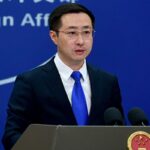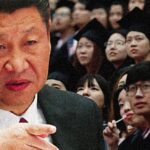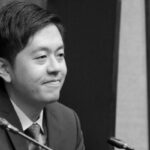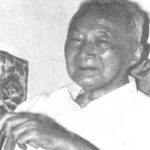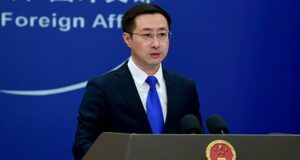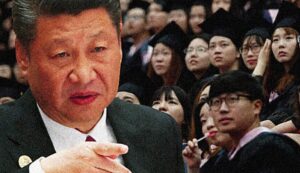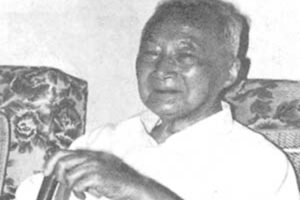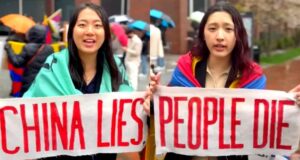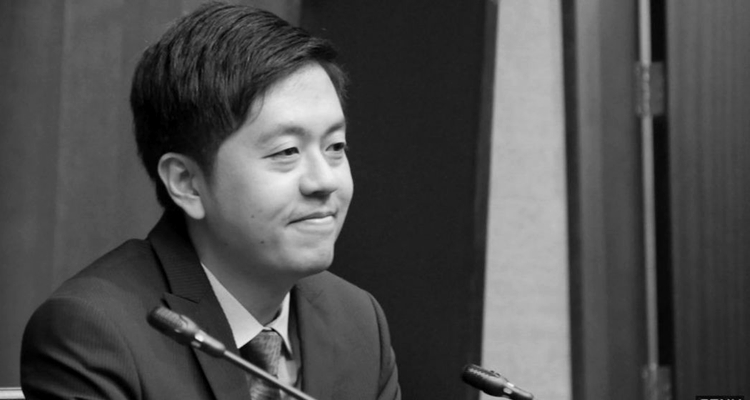
On December 24, 2024, the Dimsumdaily ran a neutral-sounding piece about the Hong Kong government’s persecution of “wanted activist Ted Hui,” among the advocates of democracy who had escaped the city.
The Hong Kong government’s view is that Hui is a criminal for criticizing the government and so forth and that it is entirely justified in putting a bounty on his head and hounding him for eternity. Hui, a former lawmaker in Hong Kong, disagrees.
Hong Kong Secretary for Security Chris Tang invoked the National Security Law, designating seven individuals, including Ted Hui Chi-fung [shown above in 2017], Kevin Yam, Dennis Kwok, Anna Kwok, Elmer Yuen, Frances Hui, and Joey Siu, as national security suspects and implementing stringent restrictions. The measures include revocation of SAR passports, temporary suspension of professional qualifications, and other steps to sever their financial resources. Describing Ted Hui and his associates as “ringleaders of wicked deeds,” a government spokesperson condemned their actions as a threat to national security.
Former lawmakers Ted Hui and Dennis Kwok, who are currently residing abroad, had their SAR passports cancelled earlier and were placed on a wanted list, with rewards offered for information leading to their arrest. Secretary Tang emphasized a ban on financial aid to the absconders, property transactions, and commercial partnerships with them, underscoring the severity of the sanctions.
The government also stripped Hui, Kwok, and other doers of wicked deeds of their professional credentials in Hong Kong and acted to seize funds that Hui had raised online.
An SAR passport is a Hong Kong passport. SAR means “special administrative region” (of China), a phrase supposed to be suggestive of Hong Kong’s “relative autonomy” under the dead and buried doctrine of “one country, two systems.” Chinese officials still babble proudly about the venerable and sacrosanct “two systems.” But in the wake of China’s sweeping crackdown on Hongkongers’ political rights in 2020, this already battered distinction has become a pure fiction.
Many crimes
In 2020, Hui “collaborated with foreign politicians to fabricate documents, deceiving the court with false information to secure approval to depart Hong Kong while on bail. Despite claiming an official visit to Denmark, Ted Hui absconded overseas, evading legal consequences.”
He employed a ruse. He didn’t want to be railroaded by the Chinese Communist Party. And so the crimes piled up: collaborating, fabricating, deceiving, falsifying, securing, departing, claiming, absconding, evading.
In September 2023, Radio Free Asia reported that Hong Kong police were questioning ringleader Hui’s relatives, a standard CCP tactic for pressuring Chinese nationals living overseas who criticize the Chinese government. At the same time—as RFA reported in the same story—“a Hong Kong court handed down a six-month jail term to Zeng Yuxuan, a doctoral student from mainland China found in possession of posters depicting the banned Pillar of Shame sculpture commemorating the 1989 Tiananmen massacre.”
Now a follow-up by ABC News Australia lets us know that Hui, years after fleeing Hong Kong, “continues to be the target of an intimidation campaign involving an anonymous ‘wanted’ letter and fake pamphlets.”
Earlier this year, the federal government lodged diplomatic protests with China after Mr Hui and another pro-democracy advocate, Kevin Yam, [were] targeted by the apparent intimidation campaign.
In 2023, Hong Kong authorities issued arrest warrants for both men and placed a “bounty” on their heads in the amount of $HK 1 million, or about $200,000 Australian dollars….
“There are public appeals everywhere…with my picture showing up, saying that ‘this man is on the run, please capture this man and bring him to the Hong Kong police’.”
Hui’s first year in Australia was the worst; he was constantly looking over his shoulder. But although he feels safer now, the possibility of being kidnapped by thugs seeking to collect a reward is never far from his mind.
Transnational repression
In addition to the support of the Australian government, whose diplomatic protests will not suffice to end the harassment of Hui and other expatriate activists, Hui has the support of the Law Society of South Australia.
“It’s very concerning for the Law Society when one of our members or, for that matter, any person that’s a member of our community appears to be targeted when they peacefully express a political opinion,” said Raffaele Piccolo, chairman of the Law Society’s Human Rights Committee.
